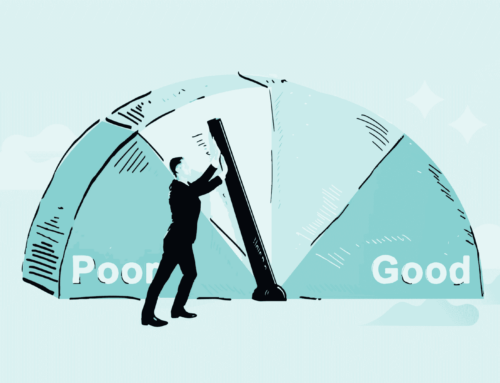Frequently Asked Questions: How To Raise Your Credit Score
Your credit score is a crucial part of your financial fitness. This three-digit number ranges from 300 to 900. Credit Scores measure your chances of approval for car loans, credit cards, personal loans, mortgages and more. But why is a credit score so important? It’s common to find credit scores confusing since there is so much conflicting information about them online. Canadians are often left wondering how to check their credit scores and how to increase their credit scores. In today’s article, we want to get to the bottom of these frequently asked credit score-related questions.
Additionally, your credit score is one of the most essential elements to help lenders determine your creditworthiness. In addition, it helps decide the interest rates you’ll pay and the credit balances you receive. Suppose you’re facing a poor credit score. In that case, you may be subject to continuous loan rejections, higher interest rates on credit cards, lower total credit balances on your credit card account and more. Unfortunately, having a good salary isn’t always enough to secure your chances of loan or credit approval. First, let’s learn the critical factors used to calculate your credit score:
How is my credit score calculated?
Depending on the credit bureau (TransUnion or Equifax) you check your credit score with and the scoring model each credit bureau uses, your credit score may differ depending on where you check it. Generally, most credit bureaus use the same factors to calculate your credit score, but the percentage they weigh on each element may differ.
Check out these five factors used to calculate your credit score.
- Payment history – this factor relates to your history of reasonable payments or late payments. If you have a history of missing payments or making late payments, which impacts your credit score.
- Credit utilization rate – Your credit utilization ratio refers to how much of your available credit you have used. So, for example, you have a credit limit of $2000 and you have a balance on your credit card of $1900 – this would indicate that you are over-utilizing your credit and suggest you may be at risk of missing payments. We recommend that you have a credit utilization ratio of 30% of your credit. So, if you had a total limit of $2000, try your best not to have a balance over $600.
- Length of credit history – this refers to how long you have had a credit history. So, you establish a credit history from when you obtain your first loan or credit card account (whichever came first). Your credit history includes having a secured credit card, an unsecured credit, personal or auto-loan. Having a long, good credit history indicates to potential lenders and credit card issuers that you have experience handling and paying back debt.
- New credit – Obtaining new credit can impact your credit score. When you apply for a credit card or loan, your potential lender may obtain your credit report, which will use
- Type of credit used – this factor refers to your credit mix. The credit bureaus may calculate your credit score, considering if you have a mix of credit accounts such as loans, mortgages, credit cards and more.
What is a good credit score?
As we mentioned, a credit score in Canada ranges from 300 to 900, with 900 being an excellent score and 300 a score that may reflect a credit-constrained consumer. Your credit score provides a quick snapshot of your credit health. So, when a potential lender or credit card issuer is evaluating your credit application, they are free to use credit scores as part of that process. But what credit score is considered good?
Whereas each creditor may prefer certain credit scores over others or provide better interest rates and rewards for excellent credit scores, generally speaking, a credit score of 650 or higher is ideal. If you’re currently facing a poor credit score between 300-600, try to aim for this magic number first. But as always, the higher the score, the better. Check out the credit score ranges in Canada and what they mean:
Credit Score Ranges in Canada:
- 300 to 600: If your credit score is in this range, you are more than likely facing a poor credit score. It will be difficult to obtain financial products while in this credit score range, and you may face higher interest rates too.
- 601 to 657: A credit score between 601 and 657 is considered fair. It will still be difficult to obtain favourable interest rates on loans or credit cards, and improvement is needed to achieve the best interest and loan terms.
- 658 to 719: You have a good credit score. Keep up the good work. You have a variety of credit choices to choose from due to your financial habits.
- 720 to 900: You have an excellent credit score. Congratulations!
How to check my credit score in Canada?
If you’re wondering why your credit score has dropped, it’s important to actively check your score and try to improve it. When you are trying to improve your score, you must also keep track of your progress, which you can do by checking your credit score online.
You perform a simple google search to find free credit score providers online. In addition, you can sign-up for a MyMarble account where you can check your credit score with the free subscription. And even better, you can receive personalized recommendations on specific ways to improve your credit score with the premium subscription.
Why should you check your credit report?
There are many ways you can access your free credit report monthly, whether it is from the credit bureau’s Equifax & TransUnion, by contacting your credit card issuer, or through a third-party website. Gaining access to your credit report will help you identify any errors on your credit report. If you find an error, your credit score may have been affected. For example, maybe there is a loan you paid off that’s still showing as active or a credit card you just opened not showing on your credit report. It’s important to check your credit report, since it is the source of how your credit score is created.
How to raise a credit score in 30 days?
If you’re looking to raise your credit score fast, it’s important to know that every person’s credit history is different. If you have accumulated years of bad credit history, it may be a lot more difficult to see any increase in your credit score in 30 days.
It typically takes at least a few months to see any major difference in your credit score. But if you are looking to add a few extra credit points, there are a couple of things you can do to raise your credit score, hopefully by next month. Check out some of our suggestions to help you raise your credit score fast:
Increase your available credit
When you’re looking to raise your credit score fast, a quick way to help gain some extra credit points is to see will your credit card issuer allow you to increase your total credit limit. With a higher total credit limit, you will have a lower credit utilization ratio. In time, this will help increase your score.
Check your credit reports for errors and dispute them
One often-overlooked way to possibly raise your credit score is to check your credit reports with the two credit bureaus TransUnion & Equifax to spot for errors. Sometimes, your credit report may have a reporting error that may cost you valuable credit points. Learn how to file a dispute on your credit report here.
Obtain a secured credit card
Having a history of paying back your credit card accounts on time will help build your score over time. But there is usually a catch 22 – you can’t obtain a credit card without good credit. A secured credit card will help with this. A secured credit card is supported by a cash deposit when you open the account; the deposit is usually equal to the credit limit. So, if you deposit $500, you’ll have a $500 limit. Paying the deposit will reduce the risk to your credit card issuer since if you don’t pay a bill, they can take it from your deposit. So if you use a secured credit card responsibly, you will see an increase in your credit score over time.
How long does it take to improve your credit score?
This is a commonly searched question by Canadian consumers. It’s hard to give an exact time frame of how fast you can improve your credit score. It is unknown how long it will take to improve your score because every individual’s credit history is different. For example, if you are new to Canada or have never obtained credit, it’s pretty easy to raise your credit score fast. You can do this by obtaining a credit card and making your payments on time and in full each month.
In addition, if you’re an individual with lots of debt and longer credit history, it may take a little more time. Especially if you’re not in the position to pay down all your debt in full. Having a high debt-to-credit ratio is a factor that can impact your credit score too. If you have lots of debt, this may make it more difficult to increase your score.
Unfortunately, if your score is poor due to missed payments, bankruptcy, credit card debt or a consumer proposal, it will take longer to increase your credit score. Because of this, it may take you a lot longer to increase your credit score – may be many months or even years, depending on the damage.






